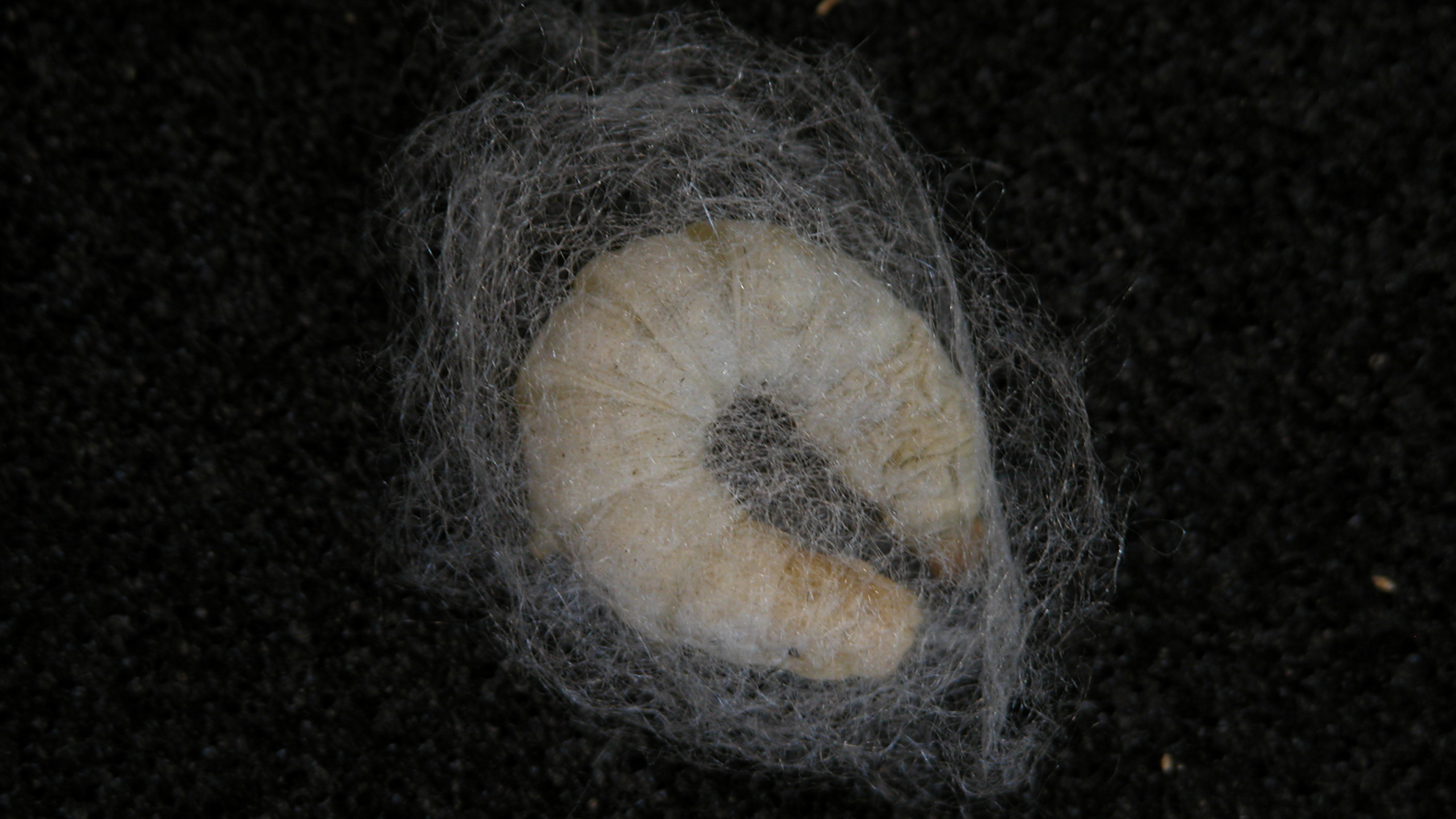현재 위치:홈 > 뉴스현황 > Press Events > Drug Delivery Could ...
저자: 업로드:2017-07-21 조회수:
Wrapping oneself up in a protective cocoon and hibernating the day away is probably an attractive idea for many people. Take your favorite media device with you, and it might even be a great way to catch up on your binge TV watching. While scientists are no strangers to the appeal of cocooning themselves from the outside world for a period, a team of investigators led by researchers at the University of Cambridge and the University of Sheffield has developed a far better use for the silk-laden encasement spun by the Bombyx mori caterpillar—on a very small scale.

Findings from the new study, published in Nature Communications in an article entitled “Silk Micrococoons for Protein Stabilisation and Molecular Encapsulation”, could potentially be used to protect sensitive molecular materials that easily degrade and lose these favorable qualities during storage or processing. Additionally, the researchers are optimistic that their new method could provide a significant technological advance in various areas, including food science, biotechnology, and medicine.
“It is a common problem in a range of areas of great practical importance to have active molecules that possess beneficial properties but are challenging to stabilize for storage," explained co-senior study investigator Tuomas Knowles, Ph.D., a fellow of St John's College at the University of Cambridge and co-director of the Centre for Protein Misfolding Diseases. "A conceptually simple, but powerful, solution is to put these inside tiny capsules. Such capsules are typically made from synthetic polymers, which can have some drawbacks, and we have recently been exploring the use of fully natural materials for this purpose. There is potential to replace plastics with sustainable biological materials, such as silk, for this purpose."
In the current study, the investigators developed a novel process that mimics at the microscale the way in which silkworms spin the cocoons from which natural silk is harvested. The resulting micron-scale capsules—or micrococoons—comprise a solid and tough shell of silk nanofibrils that surround and protect a center of liquid cargo and are more than a thousand times smaller than those created by silkworms.
The researchers believe that the same technology could also be used by the biopharmaceutical industry to treat a wide range of severe and debilitating illnesses. For instance, in the current study, the research team successfully showed that silk micrococoons could increase the stability and lifetime of an antibody that acts on a protein implicated in neurodegenerative diseases. While more research needs to be done to understand the specific pharmacodynamics associated micrococoon-encased molecules, Dr. Knowles told